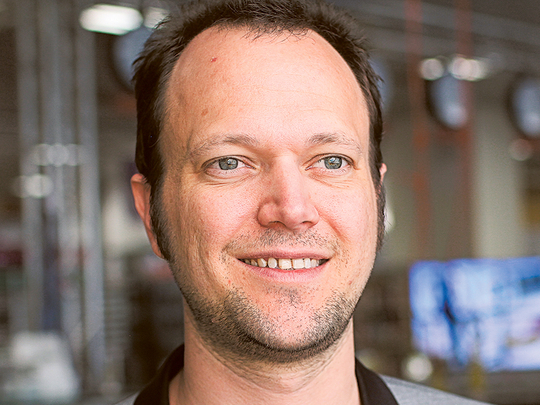
Abu Dhabi: Rural areas in the UAE could soon be dotted with sustainable eco-homes, thanks to a project being undertaken by New York University Abu Dhabi (NYUAD).
The project, which is still in its planning stages, comes as part of the recently announced Solar Decathlon Middle East competition which is being sponsored by the Dubai Electricity and Water Authority (Dewa). As part of the competition, the universities that are enlisted will have to build a sustainable and environmentally friendly home that meets several criteria including its design, feasibility, and efficiency.
“[As part of the competition], we must build a house on campus first with the entire process centred around sustainability. We have a two-year timeline,” said Matthew Karau, NYUAD engineering design lecturer and faculty supervisor of the project.
“We decided to focus on building a home that can deliver something to rural areas.”
The sustainable components of the house, said Karau, will be focused on things like water generation, electricity management, and smart systems. “All these will be key factors in livability and sustainability. The delicate balance we will need to achieve when constructing the house is to take from the best available technology today and, when possible, to use research from our own campus,” he added.
In terms of the construction of the house, Karau explained that the goal was to have students as involved as they can be in building the eco-home.
“That was the big question, do we build this ourselves or do we contract someone to do it? We came to the conclusion that having as much involvement as possible from the students [is the way forward], but maybe when it comes to producing the final framework, what we need is a structural engineer sign off on it.”
Karau said the idea is to encourage students to take ownership of the building process as much as possible — “like what it means to design a steel structure, what does it take to design the water or smart systems of the house,” he said.
Speaking on the architecture, Karau said the house will draw from both traditional and modern Emirati designs.
“The architecture is designed to match local Emirati settings, which we know have also evolved over time. We have looked to farms and early dwelling homes and taken what we can from these, and also looked at modern villa styles that inspired us. So the goal is to combine the two,” he said.
Karau noted that while the aim was to win the competition, what mattered more was to build something that could benefit society.
“We don’t want to just win, we are in this to make something that makes sense for the region and to create an alternative for the way we can build outside cities. The technology we will be using to build this eco-home can definitely in the long-term be implemented on a larger scale. It comes down to testing the technology,” he said.
Key facts
Students will design 90 square metres of high-efficiency liveable space ideal for non-urban residents of the UAE.
Planning and construction will take place over the next two years on NYUAD’s Saadiyat Island campus.
All NYUAD students will have an opportunity to get involved in the project, which needs everything from eco-friendly electrical systems to high-efficiency appliances to interior finishings, branding, and cuisine.
When complete, the house will be deconstructed and transported to Mohammad Bin Rashid Solar Park in Dubai for final construction and judging.
Judging is based on 10 categories including power systems, architecture, and design.
The winning house will be announced in October 2018.
Source: NYUAD












